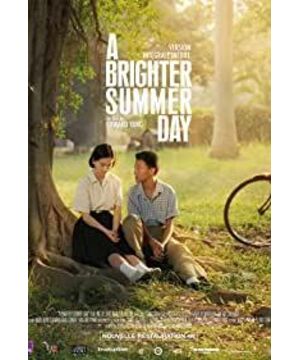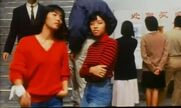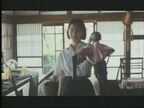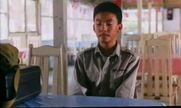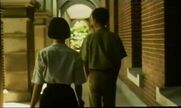As Yang Dechang's masterpiece, this film needs no further words. The nearly 4-hour video, like an epic, outlines the social background of Taiwan in the 1960s, the living conditions of middle-aged people, and the lost youth. In fact, the insertion on the set also implied Director Yang's disappointment with Taiwanese movies. Xiao Si shouted at the director of the set: "I can't tell the difference between the real and the fake, what other movies are you making...", which is really loud.
After a long blank period, CC finally brought a 4k restored version of this classic. It should be said that the restoration quality of the entire movie is amazing. Of course, it is unavoidable in individual scenes. There is a lot of noise. In addition to the brand new restoration screen, CC also carries a commentary track.
The most valuable in other tidbits is the nearly 2-hour documentary about the ups and downs of Taiwanese films in the 1980s. There are a lot of political and film history scenes in it, as well as comments on Taiwan during that period, which are extremely precious. In addition, there is a stage play directed by Yang Dechang, which is also one of the highlights. As for the interview with Zhang Zhen, it is a routine incidental. However, the manual is much more rudimentary, just a fold, but the overall production is still full of the style of the big factory, from the restoration to the tidbits to the commentary tracks are heavyweight.
On the other hand, the Taiwan version of the disc can be described as very careless, canceling all the tidbits in the CC version, even the commentary track, which shows how reluctant Taiwan China Film is to translate these tidbits~ The only bright spot may be that That traditional feature film subtitles. Fortunately, this subtitle is relatively accurate, whether it is Shanghai dialect or Tainan dialect, it is clear and accurate, especially the precise matching of the foul language in the film. Yes, because judging from the Japanese version of the tidbits, this is the first time Yang Dechang and the sound engineer have tried to record the dialogue on the spot, instead of using the post-dubbing method, so the quality of the dialogue in individual passages is not good, so subtitles are needed. However, CC also has English subtitles, and it is not impossible to use English assistance, but the translation of some Chinese is not very expressive.
As for the Taiwan version of the manual, it's even worse. A few stills and a bunch of blank pages come out to bluff people. In addition, the gift messenger bag is more meaningful than a flashlight.
The last release is the Japanese version, which completely shows a completely different enthusiasm and attitude from the Taiwan version. The biggest highlight is the translation of the entire comment track of CC. Although it is a Japanese translation, it can still assist the entire comment. The role of understanding is slightly different from CC in terms of tidbits. Only the interview with Zhang Zhen is retained, but several unique tidbits are added, such as the commemorative link of the Golden Horse Awards, and the interviews with the sound engineer and producer. Personally, I don't think it's as good as CC. In addition, the Japanese version also carries a manual, but the review articles in Japanese are really powerless to read...
Finally, to apply Xiao Ming's words, the world will not change, and the same is true for discs, only adaptation and acceptance?
View more about A Brighter Summer Day reviews


